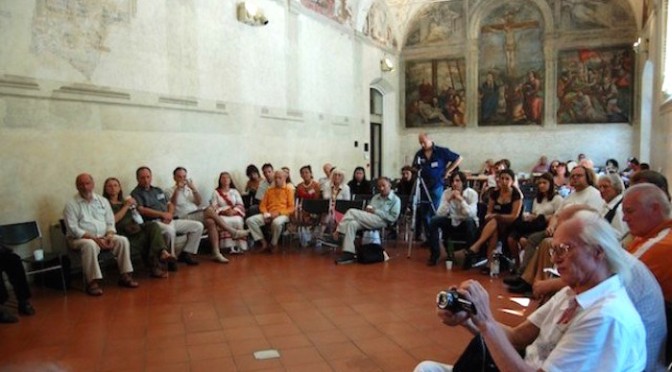Wenn man die alte Religion der Vorfahren aus den nicht so reichlichen Quellen rekonstruiert, dann steht man irgendwann vor dem Problem, daß zu einer Religion, die dem einzelnen Menschen auch Anleitungen für ein richtiges, also den Göttern gefälliges Handeln geben soll, eine ausgearbeitete ethische Lehre dazugehört. Leider ist es aber bei den germanischen Überlieferungen so, daß ethische Regeln nur indirekt zu finden sind und es daher viel Mühe braucht, um daraus wieder eine vollständige ethische Lehre zu entwickeln. Continue reading Die Ethik des Alt-Heidentums
Monthly Archives: September 2010
Nine Noble Virtues of Ásatrú
As with most other indigenous ethnic or folk religions, the ancestors of modern-day Scandinavians actually had no specific name for their religion. In those ancient times, when the whole community lived by one same religion, there was no need for a “name,” because there were simply no other religions known to them at the time. Continue reading Nine Noble Virtues of Ásatrú
ETHICS OF BALTIC RELIGION
By Jonas Trinkūnas
The Lithuanians’ ancient religion is inseparable from homeland, ancestors’ land, language; it takes its root in high antiquity and our ancestors are its originators. The ancestors pass on their most sacred knowledge to us as a traditional culture with its customs, morality, folk songs, etc. The religion itself formed as an expression of the sacrality of cultural traditions, closely related with the moral outlook. Continue reading ETHICS OF BALTIC RELIGION
THREE BASES FOR A PAGAN TRADITIONAL ETHIC IN THE PRESENT WORLD
At the ECER congress, Bologna 26-29th August 2010 c.e.
Warning: In these pages I make a wide use of the words “Pagan” and “Paganism”, even though I know that these words aren’t adopted or approved by every group here. But since I’m going to talk about some general principles that should be common to several ancient non-monotheistic traditions and since here in Italy we are used to hear many people saying that Italian tradition is only catholic tradition, I’ve decided to use the word “pagan” only to mean a tradition coming from these ancient non-monotheistic religions. Continue reading THREE BASES FOR A PAGAN TRADITIONAL ETHIC IN THE PRESENT WORLD
Ethics, moral and virtue in the context of the germanic pagan folks
By Frank Wilke
The term ethics (old Greek ethos) designates the habit, custom, usages and kind of sense of a folk. Thus the ethics is the science of correct or wrong acting and wanting (of an individual, a folk or a society) and struggles for the attempt of a clarifying of the elementary question, what good and bad is. Additionally that central, most-discussed subsection of philosophy, which concerns practically each humans, includes the terms of the individual human freedom, the social standards, the morality and the moral itself in general. Continue reading Ethics, moral and virtue in the context of the germanic pagan folks
